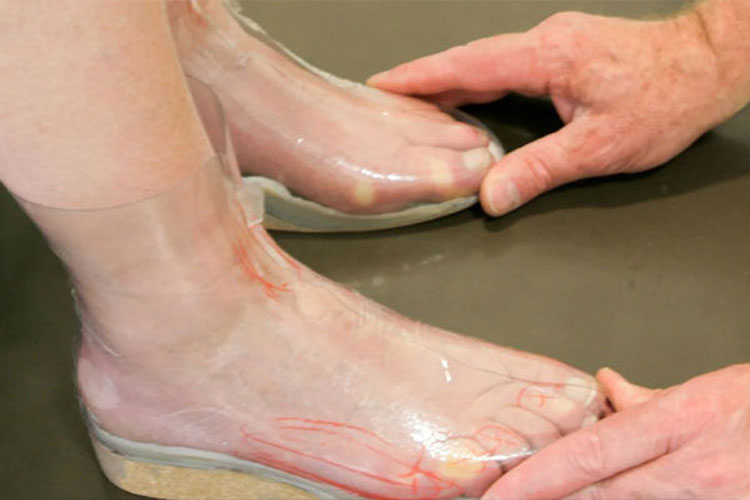
MindBody Physiotherapy & Wellness Clinic
- 107 Hawthorn Way Unit 6, Leduc, AB T9E 0B1
- Mon to Fri 9:00am to 6:00pm
-
Call us anytime
+1 (587) 468-1818
-
Write a mail
info@mindbodyphysio.ca
- Book Appointment
Blog Details
 Fri Nov 17
Fri Nov 17
Physiotherapy Interventions for Repetitive Strain Injuries
Repetitive Strain Injuries (RSIs) are becoming increasingly common in our fast-paced, technology-driven world.
Whether it’s from typing away at a computer, engaging in sports, or performing daily tasks, RSIs can sneak up on anyone.
But fear not! Physiotherapy offers a ray of hope in this seemingly endless tunnel of discomfort. Let's dive into the world of physiotherapy and explore how it can be a game-changer for those battling RSIs.
Understanding Repetitive Strain Injuries (RSIs)
Understanding Repetitive Strain Injuries (RSIs) is crucial in today's environment, where many of us engage in repetitive tasks, whether at work or in our leisure activities.
An RSI is a condition usually caused by repetitive use of a certain part of the body, often occurring in the upper limbs. This repetitive use leads to an overuse injury, affecting muscles, tendons, and nerves.

Key Characteristics of RSIs
- Gradual Onset: Unlike injuries from accidents, RSIs develop over time. Initially, you might only feel symptoms when performing the repetitive task, but as the condition progresses, symptoms might persist even at rest.
- Common Symptoms: These include pain, tenderness, stiffness, tingling, numbness, and weakness in the affected area. The symptoms often worsen with continued activity and ease with rest.
- Variety of Conditions: RSIs encompass various conditions like tendonitis, carpal tunnel syndrome, and bursitis. Each has unique characteristics but shares the common root of repetitive motion or overuse.
Causes and Risk Factors
- Repetitive Motion: This is the most obvious cause. Activities like typing, using a mouse, assembly line work, or even prolonged writing can lead to RSIs.
- Poor Ergonomics: An improperly set up workstation or incorrect posture while performing tasks increases the risk of RSIs.
- Lack of Breaks: Not taking regular breaks during repetitive tasks can exacerbate the risk of developing an RSI.
- Intensity and Duration: The more intense and longer the duration of the activity, the higher the risk of developing an RSI.
Diagnosis and Management
- Early Recognition: Noticing the early symptoms and seeking help can prevent the progression of RSIs.
- Medical Diagnosis: Healthcare professionals, often through a combination of physical examination and diagnostic tests, can diagnose RSIs.
- Rest and Modification: Initially, resting the affected area and modifying activities can help alleviate symptoms.
Prevention Strategies
- Ergonomics: Set up workstations ergonomically to reduce strain on your body.
- Regular Breaks: Taking short breaks during repetitive tasks can reduce the risk significantly.
- Exercises and Stretching: Regular exercises, especially those that strengthen and stretch the affected areas, can be beneficial.
- Awareness: Being aware of the risks and symptoms allows for early intervention, which is crucial for managing RSIs effectively.
The Role of Physiotherapy in Managing RSIs
Physiotherapy isn't just about massage and exercise; it's a holistic approach to healing. When it comes to RSIs, physiotherapists are like detectives. They assess your condition, identify the root cause of your pain, and tailor a treatment plan that addresses your specific needs.
Assessment and Diagnosis
The role of physiotherapy in managing Repetitive Strain Injuries (RSIs) is integral and multifaceted. Physiotherapists employ a range of techniques and approaches to not only treat RSIs but also to prevent their recurrence. Understanding how physiotherapy can assist in the management of RSIs is crucial for anyone suffering from these conditions.

Comprehensive Assessment
- Initial Evaluation: A physiotherapist starts by conducting a thorough assessment of the patient's condition, which includes understanding the patient's medical history, lifestyle, and the nature of their work or activities that may have contributed to the RSI.
- Diagnosis: Through physical examinations and sometimes diagnostic tools, physiotherapists can pinpoint the specific type of RSI and its severity.
Tailored Treatment Plans
- Customized Approaches: Based on the assessment, physiotherapists develop personalized treatment plans. These plans are designed to address the unique needs and recovery goals of each patient.
- Techniques Used: Treatment may include manual therapy, exercise therapy, ultrasound, electrical stimulation, and advice on posture and ergonomic adjustments.
Manual Therapy
Hands-on Techniques: This involves the physiotherapist using their hands to manipulate, mobilize, and massage the affected tissues. This can help in reducing pain, improving circulation, and enhancing movement.
Exercise Therapy
- Strengthening and Stretching: Specific exercises are prescribed to strengthen the muscles around the affected area and improve flexibility. These exercises also play a crucial role in preventing the recurrence of RSIs.
- Functional Training: Exercises are often designed to mimic everyday activities or specific work tasks, helping patients return to their normal routines safely.
Ergonomic and Lifestyle Advice
- Workplace Adjustments: Physiotherapists provide advice on ergonomic setups, which can include modifications to workstations, chairs, keyboards, and other equipment to reduce strain.
- Activity Modification: Guidance is offered on how to modify daily activities to avoid exacerbating the injury.
Pain Management and Education
- Techniques for Pain Relief: Strategies like heat or cold therapy, taping, and relaxation techniques may be used for pain management.
- Patient Education: Educating patients about their condition, how to manage it, and how to prevent future injuries is a critical component of physiotherapy.
Holistic Approach
Physiotherapists also consider the psychological impact of RSIs, offering support and strategies to cope with chronic pain and the limitations it imposes.
Monitoring and Ongoing Support
- Regular Follow-ups: The effectiveness of the treatment plan is regularly evaluated and adjusted as needed.
- Long-term Support: Physiotherapists provide ongoing support, guiding patients through their recovery journey and helping them maintain their health after recovery.
The role of physiotherapy in managing RSIs is comprehensive and patient-centered. It involves not only alleviating symptoms but also equipping patients with the tools and knowledge to manage their condition and prevent future episodes. Through a combination of hands-on treatment, exercise, education, and lifestyle modifications, physiotherapy offers a holistic approach to overcoming the challenges posed by RSIs.
Effective Physiotherapy Techniques for RSIs
- Manual Therapy: Hands-on techniques that can reduce pain and improve movement.
- Exercise Therapy: Targeted exercises to strengthen muscles and improve flexibility.
- Ergonomic Advice: Tweaking your workspace or daily activities to reduce strain.
- Pain Management Strategies: Techniques to manage and reduce pain, such as heat or cold therapy.
- Education: Understanding your condition and how to prevent future injuries.
The Importance of a Holistic Approach
Physiotherapy recognizes that healing isn't just about the physical aspect. There’s also a focus on the psychological impact of RSIs. Managing pain and adapting to lifestyle changes can be challenging, but with the right support, it's entirely possible.
Finishing Thoughts
Dealing with RSIs can feel like a long, frustrating journey. But with the right physiotherapy interventions, it’s a journey that can lead to healing and a better quality of life.
Remember, you’re not alone in this. Physiotherapists are there to guide you, support you, and help you reclaim your comfort and mobility.
Don't let RSIs hold you back. Embrace the power of physiotherapy and take the first step towards a pain-free life today.








